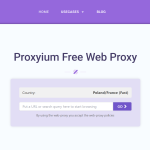As of 2025, Pennsylvania has firmly cemented itself as one of the leading hubs for legal online gambling in the United States. Since the legalization of iGaming in 2019, the Keystone State has grown into a dynamic digital gambling ecosystem, offering residents and visitors a broad selection of licensed online casinos, sportsbooks, and poker platforms. With 20 active iGaming sites, a robust regulatory framework, and billions in annual revenue, Pennsylvania’s model has become a blueprint for other states considering similar legislation.
A Fully Legalized iGaming Landscape
Pennsylvania’s legal transformation began with in-person casinos in 2006 and moved into online territory with the passage of House Bill 271 in 2017. After gaining traction, the online gambling market officially launched in 2019, opening the door to regulated casino games, sports betting, and poker. By 2025, online platforms will have surged ahead of retail venues in both usage and revenue, though in-person options will remain available.
The Pennsylvania Gaming Control Board (PGCB) oversees all operations. From licensing and compliance checks to enforcing responsible gambling protocols, PGCB ensures every operator meets high standards of transparency and safety. This oversight gives players confidence that they are participating in a secure, fair environment.
Who Can Gamble Online in PA?
To legally engage in iGaming in Pennsylvania, a player must be at least 21 years old and physically located within state borders at the time of play. This rule applies to both residents and visitors. Age restrictions vary slightly for other forms of gambling; lottery and daily fantasy sports allow participation at 18 and older.
While access is broad, certain individuals are restricted from betting. These include sports officials, professional athletes, and others directly involved in the outcome of games. Additionally, players on self-exclusion lists are blocked from participating, reinforcing Pennsylvania’s strong commitment to responsible gambling.
Available Forms of iGaming
Pennsylvania’s iGaming market includes a wide variety of digital gambling options. Players can choose from online casinos offering slot games, table games, and live dealer experiences. Sports betting has flourished, with betting available on major league games, college sports, and international events. Poker is also legal and recently expanded to multi-state platforms, allowing Pennsylvanians to play against users in other jurisdictions like New Jersey and Michigan.
Daily fantasy sports round out the iGaming portfolio. These platforms provide an alternative for sports fans seeking skill-based games tied to real-world athletic performance. The range of options ensures something for nearly every type of player.
Growth and Economic Impact
The Pennsylvania iGaming industry continues to post impressive numbers. Over the past 12 months, online casinos in the state generated more than $2.83 billion in gross gaming revenue. This places Pennsylvania ahead of all other legal online casino markets in the U.S. In March alone, internet casino revenue hit $265.4 million, highlighting strong month-over-month growth.
These figures go beyond headlines—they represent real economic gains. Since legalization, online and retail gambling have generated over $3.62 billion in tax revenue, funding property tax relief, tourism initiatives, local development, and support for host communities. As of 2025, the industry supports approximately 65,000 jobs across the state.
Major Regulatory Developments in 2025
Several regulatory changes have shaped the iGaming scene in 2025. Most notably, Governor Josh Shapiro signed a multi-state gaming agreement allowing online poker players in Pennsylvania to compete with users from other states. This not only enhances the player experience but also expands liquidity pools, improving prize opportunities.
Additionally, two casino operators exited the market in July, hinting at a possible wave of industry consolidation and shifting competitive dynamics. While this narrows the list of available options, it opens the door for new entries and innovations from existing providers.
Taxation and Licensing
All gambling winnings in Pennsylvania are subject to a flat 3.07% tax rate. Operators are heavily taxed as well, with licensing fees, revenue percentages, and strict reporting requirements mandated by the PGCB. These funds are reinvested in state programs, creating a cycle of benefit for the broader community.
There are currently 25 available iGaming licenses, with 20 already active. These include licenses for online casinos, sportsbooks, and poker rooms. Each license requires ongoing compliance, including responsible gaming measures, data security, and proof of operational fairness.
Safety and Responsible Gambling
Safety is a cornerstone of Pennsylvania’s iGaming framework. Licensed operators must implement advanced security systems to protect player information and financial data. More importantly, all platforms are required to offer tools that support responsible gambling, such as self-exclusion programs, deposit limits, and time-out features.
The PGCB also provides resources for individuals struggling with gambling addiction. These include hotlines, referral services, and partnerships with professional organizations focused on treatment and prevention. Players can opt into self-exclusion programs through the PGCB or individual operators.
Online Sports Betting Expansion
Sports betting remains one of the fastest-growing sectors within Pennsylvania’s gambling market. Initially launched through retail sportsbooks in 2018, online platforms quickly took the lead. Today, bettors can place wagers from anywhere in the state, provided they meet age and location requirements.
The state’s sportsbooks allow wagers on both professional and college sports, though some restrictions still apply. For instance, political events and entertainment-based markets remain off-limits under current regulations. Esports, while growing in popularity, are still being debated as part of ongoing legislative updates.
iGaming Operators in 2025
The competition among operators is fierce. As of July, the state boasts 20 active platforms with a mix of casino-only, sportsbook-only, and hybrid services. Offerings include slots, blackjack, poker, and live dealer games.
Some platforms also offer extensive bonuses, loyalty programs, and mobile-optimized apps, catering to various player preferences. While many platforms have similar games, what differentiates them are the promotional offers, payment flexibility, and customer support.
Sustaining Momentum in a Growing Market
Looking forward, Pennsylvania appears poised to remain a national leader in online gambling. The combination of legal clarity, technological infrastructure, and consumer demand makes it an ideal environment for continued innovation and market expansion. Whether new gaming formats will be introduced or existing ones refined, the future of iGaming in the state looks bright.
As the market evolves, the emphasis on player safety, responsible practices, and economic contribution remains central to the state’s approach. This balanced strategy helps ensure iGaming in Pennsylvania continues to grow responsibly—benefiting not only operators and players, but the broader community as well.








